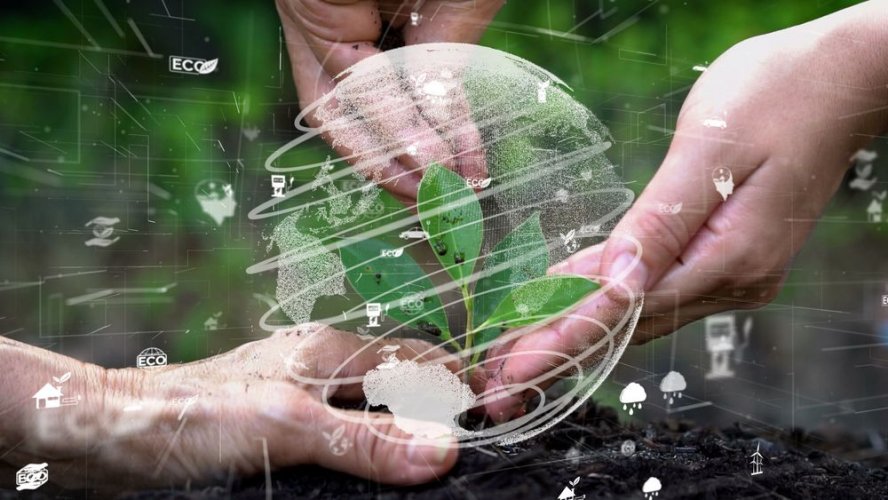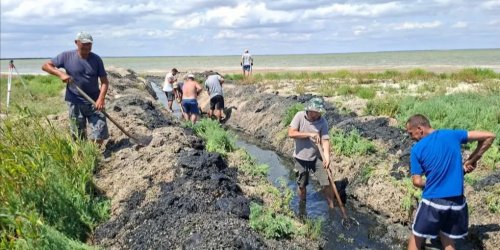The initial assessment of the state of implementation of EU acquis has shown that Ukraine has to fully or partially implement 156 acts in the field of environmental protection and climate change.
The total number of acts in the negotiating section reaches 911, of which 13 acts are fully implemented and 717 do not require implementation, according to the report on the Government Portal.
It is noted that Ukraine became the first country to conduct a self-screening prior to the official screening by the European Commission. It was conducted in several stages over 6 months.
The negotiating section "Environment and Climate Change" covers EU law relating to:
- ensuring sustainable development;
- environmental protection;
- improvement of the quality of the environment, water, air;
- creation of an effective waste management system;
- control over industrial pollution, as well as chemical and genetically modified organisms;
- preservation of forests, wild flora and fauna and effective management of biological resources;
- prevention of climate change and preservation of the ozone layer;
- prevention of noise pollution.
The report emphasized that Ukraine's obligations under the Association Agreement do not cover all provisions of the EU Directives.
General description of the current state of implementation of the negotiation section:
- Environmental impact assessment and strategic environmental assessment – full implementation of the Directives and public hearings are ensured, in particular during martial law;
- Atmospheric air quality and industrial pollution - an environmental monitoring system was introduced, Law No. 2393-IX was adopted on the improvement of the mechanism for regulating pollutant emissions into atmospheric air, it is important to adopt the law on industrial pollution and further legislative regulation of all aspects of industrial pollution prevention;
- Water resources management - the strategy and state water monitoring program until 2026 were approved. The Ministry of Health is working on updating the legislation on requirements for the quality of water intended for human consumption. Ukraine also updated its Water Code and defined river basin areas;
- Waste management - the framework law No. 2320-IX "On waste management" was approved and the development of normative acts to fulfill its requirements, in particular, regarding the extended responsibility of the producer and regional waste management plans, is ongoing. However, the functioning of the reform and the modernization of the waste management infrastructure will require significant efforts;
- Management of chemicals and chemical safety - there are no rules and criteria in Ukraine that would apply to chemical products. Law No. 2804-IX "On ensuring chemical safety and management of chemical products" was adopted. However, none of the EU legislation in this area is covered by the Association Agreement;
- Forestry - a comprehensive reform of the forest management system is currently underway in Ukraine to ensure the protection and protection of forests from fires, illegal felling, pests and diseases, damage due to anthropogenic and other harmful effects, and other violations of forest and natural legislation. It is important to adopt the draft law on the wood market, which will become the basis for the further implementation of EU legal acts;
- Nature protection – a draft law on the territories of the Emerald Network was developed, the procedure for the creation of protected areas was approved. Active work is underway to improve mechanisms for issuing permits for trade in endangered species of wild fauna and flora (CITIES);
- noise pollution – this area is not widely implemented in Ukraine;
- Climate change – the government approved Ukraine's updated nationally determined contribution to the Paris Agreement (PPA) until 2030, and also adopted a climate change adaptation strategy. Also, a system of monitoring, reporting and verification of greenhouse gas emissions was introduced at the plant level, and the development of comprehensive legislation on the national system of trading quotas for greenhouse gas emissions was started.
In the self-screening, it was emphasized that the implementation of EU legal acts into the legislation of Ukraine will require:
- significant systemic changes;
- development and adoption of a large number of new legislative acts and systematic review of existing legislation;
- creation of new institutional mechanisms and radical changes of a number of existing ones;
- the introduction of new tools and the scope of new legal relations;
- creation of technical prerequisites and implementation of digital solutions.
"The implementation of EU directives and regulations in the field of environmental protection will ensure the creation of a comprehensive system of access to environmental information, rational use of natural resources, preservation and reproduction of natural ecosystems and biodiversity, management of waste and hazardous chemicals, reduction of industrial pollution. This will create prerequisites for observing the citizens' right to a safe and clean environment, air, and water resources," the report says.
It is noted that the implementation of measures to reduce greenhouse gas emissions will contribute to the gradual transition to low-carbon development, while ensuring active economic development. Implementation of adaptation measures will increase the resilience of regions suffering from rising temperatures, rising water levels or extreme weather events, and will also improve the quality of life of the population.
As EcoPolitic reported earlier, the European Commission on November 8 in the official report "Ukraine 2023" assessed the country's progress at "2" on a five-point scale – a "certain level" in the field of environmental protection and change climate, and in February 2023 Ukraine received "1" – "initial level of preparation".





